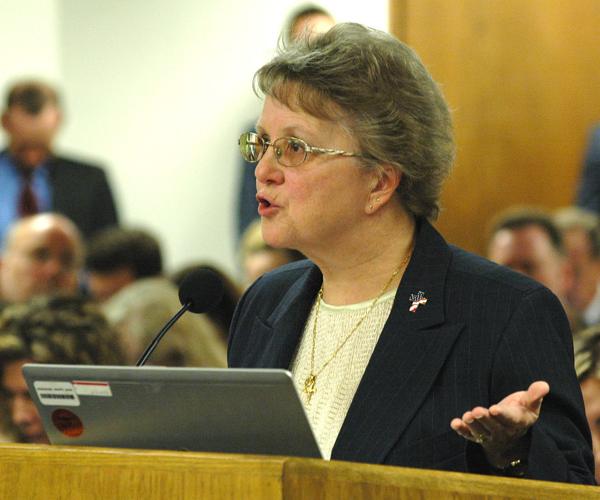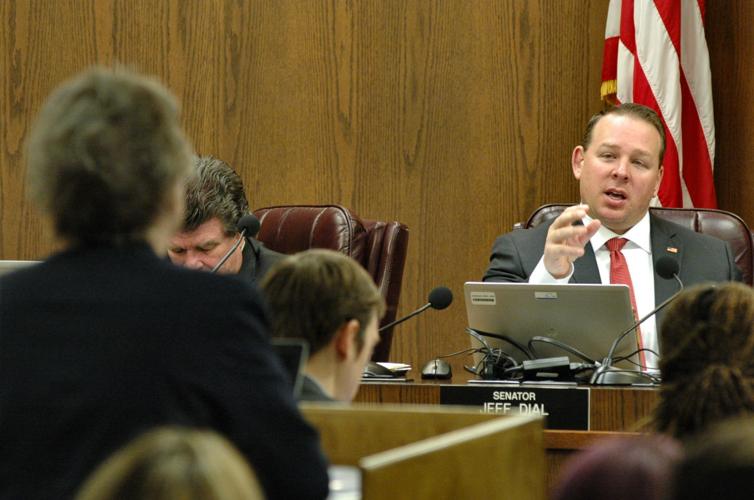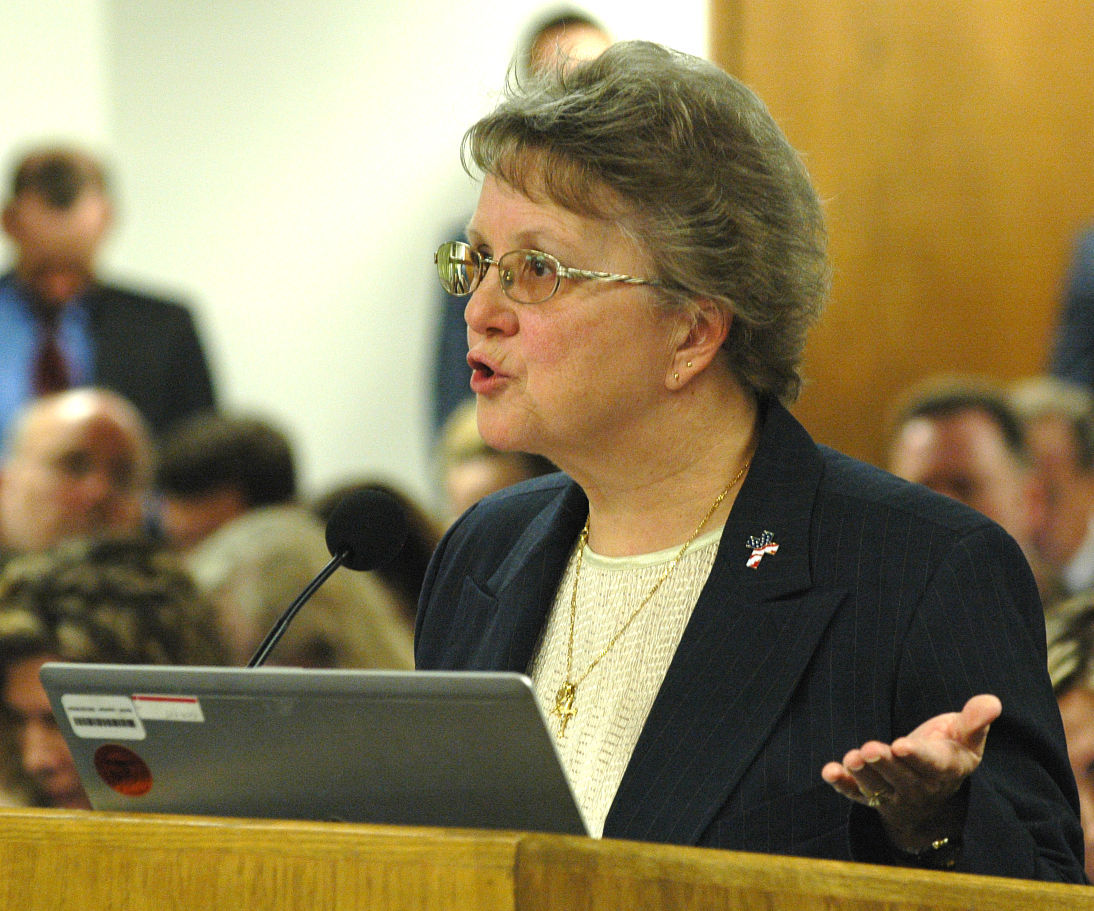PHOENIX — A Senate panel voted Thursday to take away some of the powers that now appear to be granted to state schools chief Diane Douglas.
The legislation approved by the Education Committee makes it clear that the Board of Education has the power to hire, fire and supervise its own employees.
Douglas, who addressed the committee before its vote, has claimed — and gone to court — to argue they report to her.
SB 1416 also spells out clearly that the board, made up mostly of gubernatorial appointees, sets policy.
The measure acknowledges that while Douglas is elected by voters, her role is simply to carry out that policy.
The legislation, which needs Senate approval, likely would resolve two pending lawsuits between Douglas and the board over the division of powers — and not the way Douglas wants.
In one lawsuit Douglas contends the law gives her the right to control board employees and fire them at will. A trial judge dismissed her claim, calling the dispute a political matter outside the scope of the courts; Douglas is appealing.
In a second case, the board sued Douglas over her failure to give board employees remote access to teacher records. That case is still pending.
Douglas acknowledged the lawsuits would go away. But she told lawmakers their action would essentially reward the board for what she contends has been their violation of the law.
But much of her objections revolve around the fact that, unlike the board, she is elected directly by voters.
“Imagine if someone would introduce a bill that would make you a legislator in name only,” Douglas said. “Imagine it went further and delegated your authority to unelected appointees and staff members.”
Douglas said the legislation ignores her constitutional role as superintendent of public instruction.
“The superintendent is the only elected body at the state level, in the state board, in education, to speak for the people of Arizona,” Douglas said.
Sen. Jeff Dial, R-Chandler, who crafted the measure, dismissed that argument.
“The governor is also elected by the people,” he told Douglas, saying voters probably pay more attention to the governor’s race. And he said the governor makes his will known through his appointments to the board, just as the governor names members of the Board of Regents and other state boards.
Douglas, however, said the state school chief should have more say over education policy than the governor.
“Our governor does great work in many, many areas,” she said. “But the superintendent is the elected executive officer whose sole mandate is the education of the children of Arizona. … And I think the people of Arizona pay very close attention to that election because it is their only voice in that particular area.”
But Sen. Sylvia Allen, R-Snowflake, who chairs the committee, told the schools chief she is off base with her claims of priority.
“You don’t have policy-making authority,” Allen said. That, she said, falls to the board.
Douglas backed away from claims made just a day earlier that the legislation is unconstitutional. She conceded that the Arizona Constitution does say it is up to the Legislature to determine both her duties and those of the board.
But she argued there are good reasons to maintain her control.
One is that the board meets just 11 times a year.
“Citizens of Arizona are not being served well in a case where people who are employed to serve them are allowed to be unsupervised and unaccountable,” Douglas told lawmakers.
She backed up her arguments by pointing out that board investigators had failed to enter into a national database the names of teachers who were found guilty of misconduct and lost their Arizona teaching certificates. That process, said Douglas, “keeps dangerous criminals out of our children’s classrooms.”
Karol Schmidt, named the board’s executive director last November, acknowledged the problem. But she told lawmakers it has been fixed and practices are being implemented to prevent that situation from repeating itself.
Dial argued against Douglas’ claim that board employees need her full-time supervision.
“Do you think the Legislature, even though we meet for about 100 days a year, that we don’t supervise our employees the rest of the year, that they just run crazy?” he asked her. And Allen pointed out the board has an executive director “just like we have a chief of staff here who manages the employees when we’re not here.”
Sen. Steve Smith, R-Maricopa, who voted against the measure, acknowledged that the existing laws may need to be clarified. But he sided with Douglas, saying if there is any doubt, “I err on the side of the public official” rather than the appointed board.







